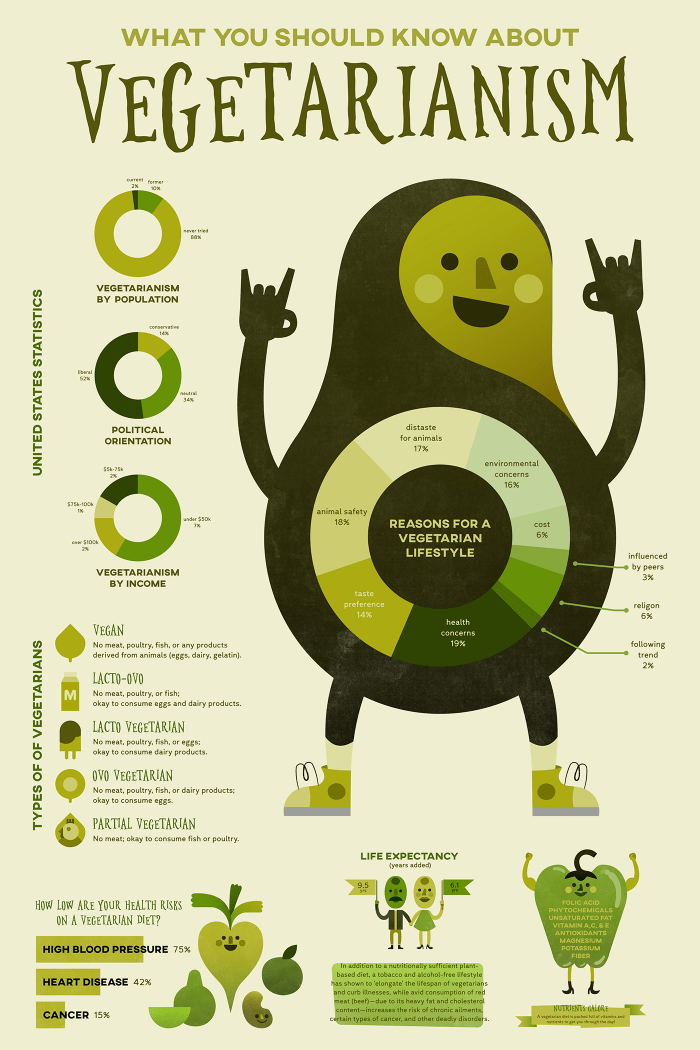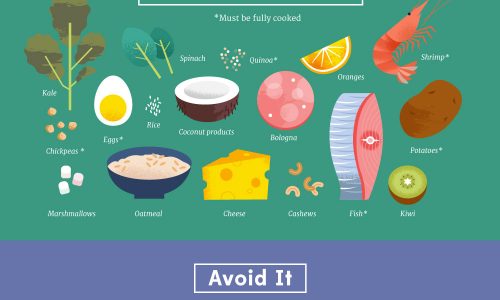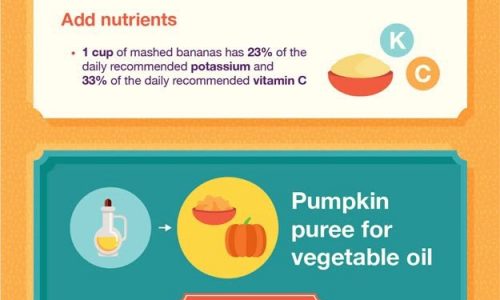
People are switching to vegetarian and vegan diets in increasing numbers around the world. Whether it’s concerns about climate change, worries about animal welfare, or an attempt to find a healthier diet, many people are moving away from meat-based diets. Here are some important statistics about vegetarianism that you might not have heard of.
The internet is a great place to learn about vegetarian or vegan diets, but there’s also plenty of misinformation online. That’s why this handy infographic sums up reliable and researched facts. For example, there’s a wide array of reasons that people cite for becoming vegetarians: health concerns take the top spot at 19%, while animal safety and distaste for animals are also key reasons at 18% and 17% respectively. Perhaps unsurprisingly, only 2% of people state that they turned to vegetarianism to follow a trend.
There’s good news for those health-conscious vegetarians: a plant-based diet adds an average of 9.5 years in life expectancy for men, and 6.1 years for women. It can also lower your risk of high blood pressure, heart disease, and cancer while helping you eat plenty of nutrients like folic acid, phytochemicals, and magnesium. Ultimately, whether you’re a strict vegan or just trying to eat less meat, plant-based eating has benefits for everyone. We found this useful guide on how to go vegetarian as a trustworthy reference.





